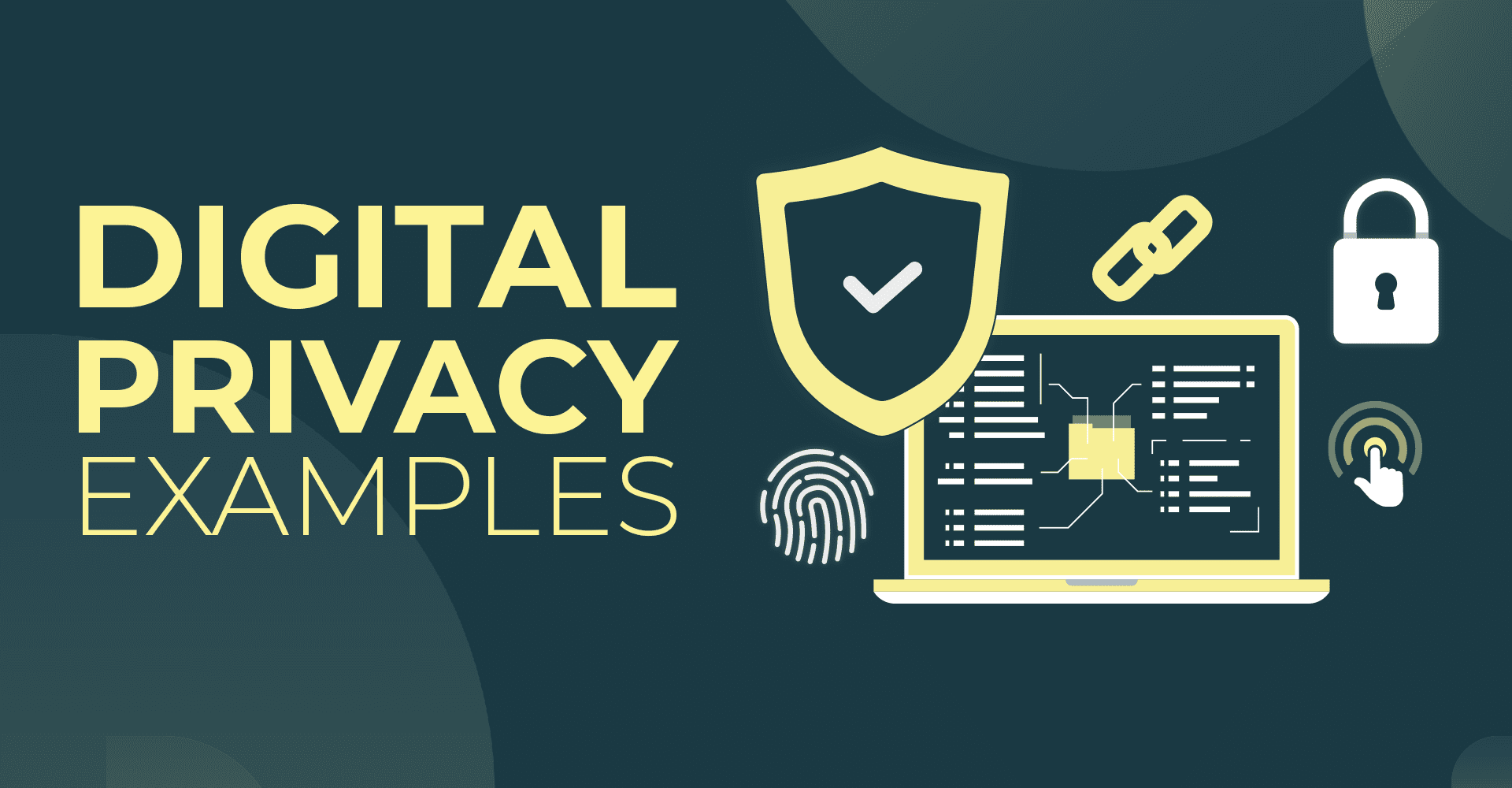Let’s take a look at five digital privacy examples that will help you unpack personal privacy, digital rights, and data privacy violations. These examples highlight things like how everyday apps may track your data, how surveillance cameras monitor your activity offline, and ways of highlighting your data processing policies.
If you're still unclear about digital privacy, check out our post where we define digital privacy and explain the concept.
Here are some examples of digital privacy that we found on the internet.
5 Digital Privacy Examples
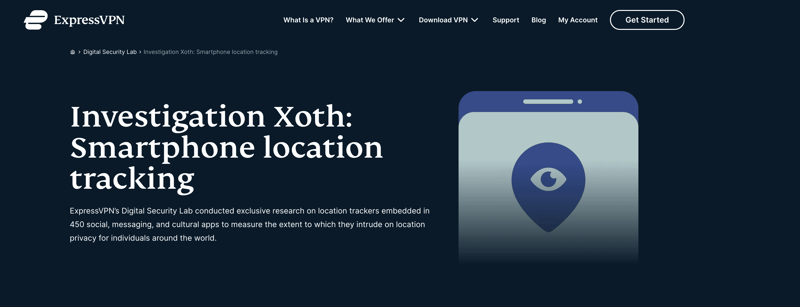
ExpressVPN’s Digital Security Lab conducted a study to assess the impact of location trackers on the privacy of individuals globally. The research focused on 450 social, messaging, and cultural applications to examine the degree to which they violate location privacy.
What they found was eye-opening: the team discovered location tracking SDKs in 450 apps on the iOS and Android app stores. The apps in question had cumulative downloads of at least 1.7 billion — meaning that the developers of these apps could theoretically collect and analyze user location data at will.
The study also discovered 42 messaging apps in both app stores that had location tracking SDKs. These apps, with a total of 187 million downloads, tried to portray themselves as services such as Telegram, Facebook Messenger, and WeChat.
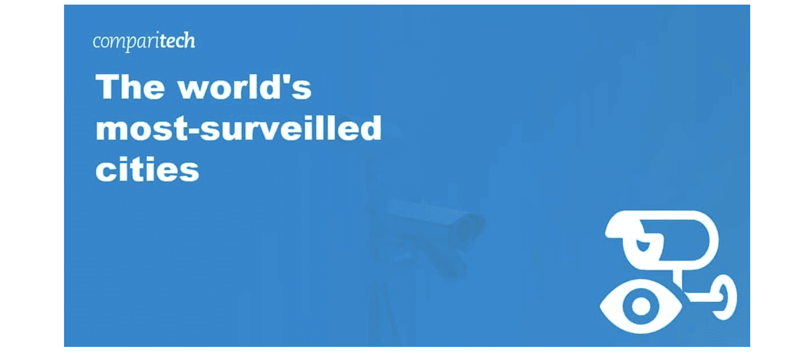
We often conflate digital privacy with online behavior, but it’s also important to register that what we do offline can be beamed into livestreams and find its way on to the internet, often without our consent.
The case of surveillance cameras is a unique case in point: these intrusive devices are often tucked away in non-descript areas but are recording your location, facial expressions, and other parts of your life. Comparitech’s investigation shows that China is the most surveilled country in the world, with nearly 373 cameras per 1,000 people across its major cities.
The Indian city of Indore is a distant second, with approximately 67 cameras per 1,000 people. The most surveilled city in the western hemisphere is London, UK with nearly 13.5 cameras per 1,000 residents.
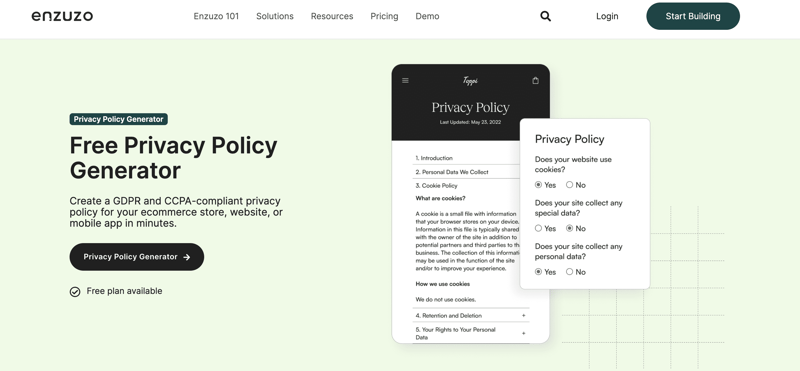
The thing about digital privacy is that consumers are okay with firms collecting their data, as long as they’re open, transparent, and honest about what they do with it and if they share it with third parties. Data privacy laws like the GDPR also allow companies to collect data — but they need to state that openly and up front on their websites.
Enzuzo’s privacy policy generator is included in this list of digital privacy examples because it’s a perfectly legal and compliant way for you to store user information like addresses, credit card details, phone numbers, and more. You only run the risk of non-compliance if you store information without being transparent about it.
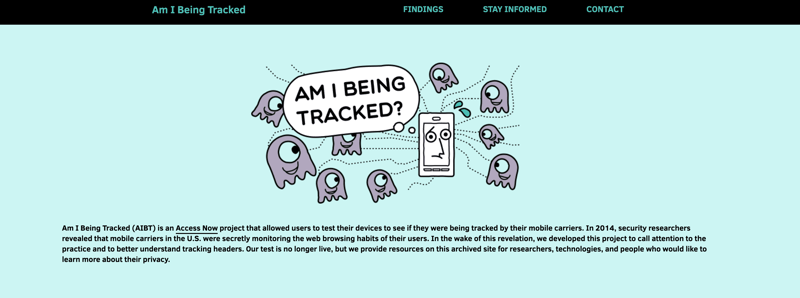
AccessNow, a non-profit organization that aims to defend and extend the digital rights of users, launched a project in 2014 that allowed users to test their devices to see if they were being tracked by their mobile phone operators.
Two hundred thousand people from 164 countries participated in the project, with nearly 15.3% showing the presence of tracking headers. The biggest offender was Verizon, a popular U.S. mobile phone operator, with nearly 19,000 positive results. And the U.S., had the most amount of positive results overall, at 23,123.
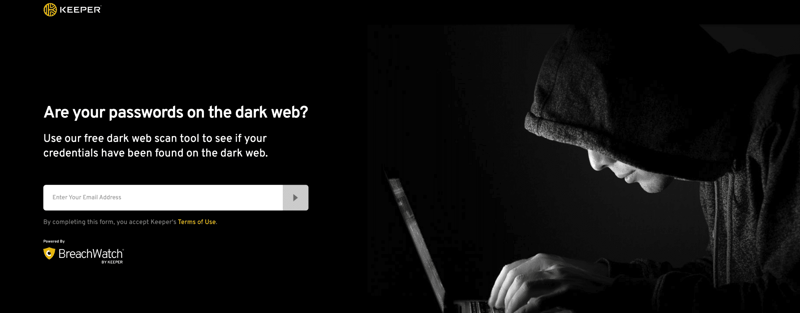
Data from security breaches and exposed databases tends to end up for sale on the dark web, so it’s a good place to look if you think you might have been compromised.
For example, over a billion personal identity records were exposed and revealed on the dark web after India’s government ID database, Aadhar, was hacked.
Keeper Security’s dark web scanner is a digital privacy example that helps you claim back your privacy if you think you’ve been hacked. And given how many data breaches end up on the dark web, you shouldn’t be surprised to see some of your accounts lurking there.
